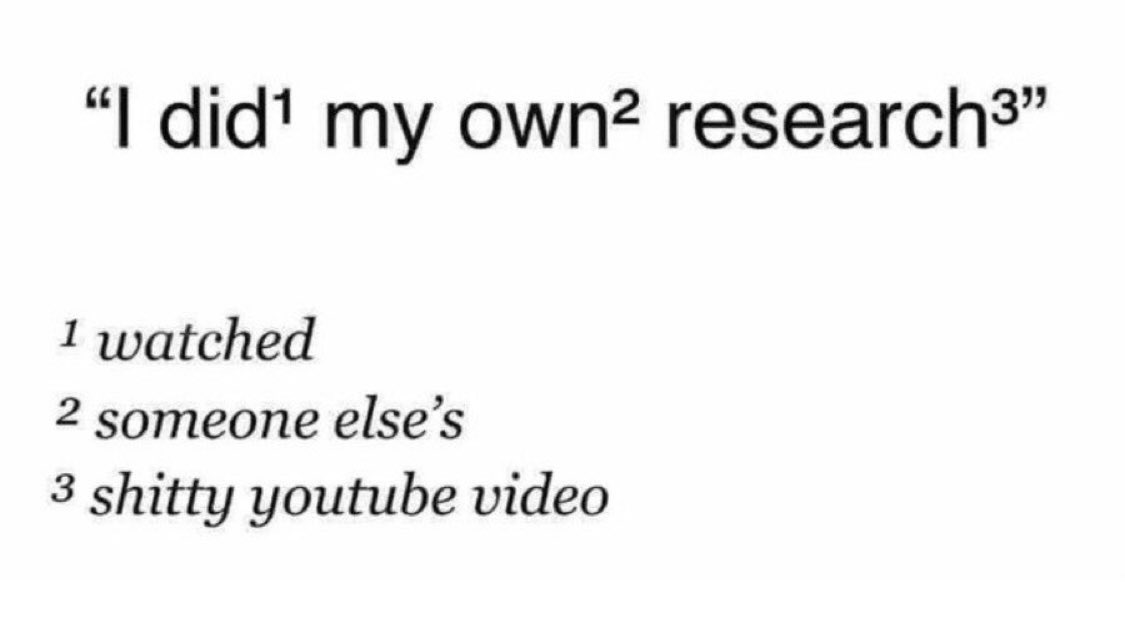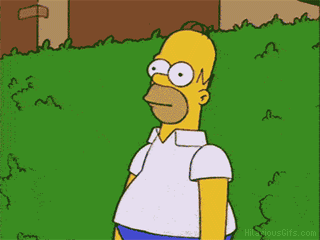After a little more than two months in which I earned a certification in Google Analytics, technical writing, and Camtasia, I decided it was high time I share my research tips.
Be the first to know of new videos by subscribing to my channel and setting notifications!
Why THIS project?
I’m always eager to share my research tips with anyone, which is the main reason for this project. It has helped me cut through the bullsh*t of bad information to discover what worked for me. And I ain’t gonna lie—I also need to hold my feet to the fire to keep up with my Camtasia skills. It’s a secondary reason, but my passion to share research tips is the driving factor for this project.
As I mentioned in the video, I’m often asked, “How did you figure that out?” and “Where did you learn to do that?”
That’s because my research skills have helped me develop SEO content to top the search rankings for the desired keywords for a business I co-founded. I created marketing content and training manuals and curriculum for programs I developed for career guidance and college planning.
Research has also helped me get more out of my personal life by overcoming severe depression and allergies and maintaining a loss of 80 pounds (so far).
I don’t think of my skills as being particularly impressive, but perhaps it’s because growing up in the Midwest, humility, particularly for women, is taught as the “default setting.” Unfortunately, that outlook is not compatible with the shameless self-promotion that is necessary to get ahead in the world.
This project is my compromise—instead of just saying “I’m awesome,” I’d rather share something useful which also serves as proof of what I can do. Asking for subscribers still feels a little weird to me, but that’s just the point of learning a new skill—rip off the band-aid, leap out of your comfort zone, and be ready to change your perspective. And with any positive change in your life, to make it permanent, it requires the right mindset and persistence.
Two research tips
Since an intro video is a standard part of starting a new YouTube channel, I wanted to include at least two research tips that provide the basis of everything I do. These two tips are also helpful parts of positive, permanent change.
Number one: Keep an open mind.
So much great information is available at your fingertips, but you are bound to run into some information that does not match your perspective. Do not forget—you are looking for information because you realize there is something you do not already know.
There is a possibility you haven’t found it because you need to expand your resources or your perspective. Becoming more openminded is a big part of making positive change permanent.
Number two: Anything worth knowing will be worth the time you spend researching it.
Everyone is short on time. If you’re not used to researching information, it might seem like any amount of time beyond a quick look for a source that validates your opinion is time wasted.
Not knowing where to start, not knowing efficient techniques, and encountering more information than you know what to do with can be overwhelming.
That’s why I focus on simplifying my steps and taking it one step at a time. When you know the tricks to make the most of your time, developing the persistence that is also part of positive, permanent change becomes a lot easier.
Research tips and skills, not “answers”
My goal is not to throw out an answer, but to show you the tips which are essentially the shortcuts to finding out not just what you want to know, but what you need to know.
This is not to say I won’t provide answers; I’m focused on showing how I arrived at an answer.
I could be wrong.
The best information available at the time becomes outdated and can be disproven.
But the right process often points the way to the most valid, useful information available.

Too often, what a lot of people call “research” is nothing more than cherry-picking Wikipedia or sticking to the sources that will spoon-feed the preferred answer. And if research is new to you, it’s understandable if you just want the quickest answer that “sounds right” or “feels right.”
Research doesn’t have to be time-consuming, but it should be focused on the truth.
What’s so great about research?
I started out as a curious kid and I’ve never stopped being curious. Both meanings of curious are quite valid for me. I am always eager to learn, and a bit unusual (according to “normal” people).
I first realized I had a useful skill in 2nd grade when the teacher decided to go off-script.
I’ll never forget the panic of the other kids when our teacher seemed to have an epiphany and strode to the front of the class with a determined look on her face. Perhaps she and her colleagues were discussing skills that were missing in the curriculum over a smoke break in the teacher’s lounge.
Yes. Smoking. They smoked IN the teacher’s lounge way back in the day. But back to the point—
“Which one of you will be the first to show me where your Science book explains the difference between plant cells and animal cells?” She said, as she crossed her arms with a commanding stance at the front of the room.
The whooshing of students frantically flipping through the pages could have been heard a few doors down. But the whining and whimpering was probably heard down the hall. The teacher’s pets, the tattle-tales, the “Tracy Flicks” of the class were bellyaching, “We haven’t covered that yet!” and “That’s not fair!!!”
Unfazed, our teacher stood waiting patiently for the right answer. It was as if she had cast a spell upon herself, and breaking that spell would require no less than the correct answer from one of her students.
As a curious kid, I had always wondered why my books had a table of contents, glossary, and index. I knew there had to be a reason these extra pages were in every book. Otherwise, it would be a tremendous waste of ink and paper. At some point, I had asked one of my parents, teachers, or librarians. I don’t remember how I knew this, but I already knew using at least one of those parts of the book would be a lot faster than flipping through the pages and scanning all the content.
I homed in on the keyword “animal cells,” and scoured the table of contents. It wasn’t automatically clear where I would find the answer, so I flipped to the glossary. She never said we had to find the right chapter—just where it would be in the book.
The glossary had only the most basic definitions, and it didn’t seem quite like what she was asking for. I was not very familiar with the index, but I found the right page. With a quick glance, I had my finger on the paragraph, and looked up as I raised my hand.
I saw the teacher was already staring at me. I was the only one who knew to do this. I think she might have been a bit surprised as I was not her most enthusiastic student.
Unfortunately, this also meant I had to read the paragraph out loud in front of the class. This was years before I got into drama class, so I really was not into that kind of thing at the time. Yikes.

That day, the rest of the class learned how to use their resources.
But I learned just how useful it is to be curious and resourceful.
Timeless research tips
When the internet started to take off, one of the common complaints was that it was hard to find information. Some kids would try to type a question into the computer, expecting a big beige box of 1994 to be a genie that could magically discern the purpose of their question and retrieve the result they truly needed. I figured out a few tricks and became the go-to person for internet searches in group projects. In the days before Google, when you had to rely on Alta Vista unless you wanted to “Ask Jeeves,” you had to do a lot more of the work.
The rudimentary search engines of yesteryear were one of the ways I realized that it is only by asking the right question that you can get the right answer. Likewise, knowing the strengths and limitations of the tools you are using can help you get the best results.
Although the tools have changed, the same skills and perspective that helped me find information in second grade with what were quite literally “old-school” books helped me adapt to internet search. As search engines have improved, the same techniques have served me well. The knowledge is out there, and with the right skills, mindset, and persistence, you can find it.
Knowledge is out there
That was the original title of this project. “Knowledge is out there.” A play on words from “Knowledge is power.”
The idea was that since I’m a little bit “out there” (still a curious kid at heart), I’m just the right person to help you find the knowledge that is out there.
“Any word you have to hunt for in a thesaurus is the wrong word. There are no exceptions to this rule.”
–Stephen King
Any title that requires an explanation is always the wrong title. It’s like going to a Halloween party and having to explain your costume all night. Stephen King makes a great point with this quote*. Likewise, what sounds good on the first draft won’t always make the final cut.
I had the domain, email, and twitter account ready to match “Knowledge is out there,” but if there’s one thing I’ve learned from art classes, it is that your first idea is not always your best.
Had I skipped the step of making an intro video, I probably would have realized how clunky and unworkable it was only after 3 or 4 videos. Then, I would have to go back and change my channel name, twitter, email, domain, and I’d have to sheepishly mention the change to a few friends.
Starting over
Sometimes you have to start over. Backtracking is discouraging, but starting over is still a start. Starting the right way is best, even if that start is delayed. I was all fired up and had to scrap an entire domain, but with the right mindset and persistence, I’m finally on the right track.
No matter what I call the channel, I’m always ready to research, and the knowledge is still out there. Now you have someone who is a little bit “out there” to help you find it.
*This quote from Stephen King is a little bit out of context. It’s referring more to a first draft than writing overall, but the point stands that getting to complicated will spoil the point. Here’s a good reference that explains the meaning of this quote better than I can: https://seattleauthor.com/2013/07/24/king-vs-thesaurus/




